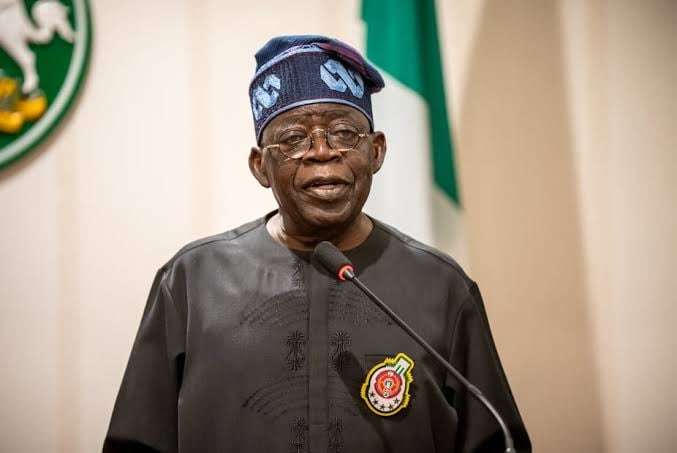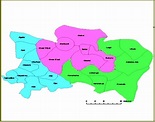By Emman Usman Shehu
The flickering screens of Nigeria recently illuminated a truth that should chill every advocate of democracy: a journalist, Hassan Mai-Waya Kangiwa, was arrested, not for a crime, but for exposing one. His offense? Daring to show the world the dilapidated state of Kangiwa General Hospital in Kebbi State. In a nation grappling with the promise and peril of its democratic journey, this wasn’t just an isolated incident; it was a stark, almost theatrical, demonstration of an administration seemingly intent on dismantling the very pillars of a free society.
For too long, the rhetoric of democratic progress in Nigeria has been shadowed by a creeping authoritarianism. Now, with the Kangiwa affair, that shadow has taken concrete form, a chilling blueprint of how a government can weaponise its power against its own citizens, particularly those brave enough to hold it accountable. The Media Rights Agenda (MRA) rightly condemned this “alarming escalation of attacks, intimidation, and harassment of journalists,” labeling it a “grave danger to media freedom, free expression, and citizens’ right to information.” Their words are not hyperbole; they are a necessary alarm bell.
The narrative of Hassan Kangiwa is painfully simple yet profoundly illustrative. A citizen documents a failing public service – a hospital in disrepair – and shares it. This act, in any functioning democracy, would be lauded as civic engagement, prompting introspection and remedial action from the authorities. In Kebbi, however, Governor Nasir Idris chose a different path: punishment. Security operatives, acting on official orders, descended on Kangiwa’s home, seizing his phones and equipment, denying him access to legal counsel. The message was unmistakable: exposing uncomfortable truths will be met with force, not reform.
This is not governance; it is suppression. It is the antithesis of democratic accountability. This coming on the heels of the closure of an FM Station in Niger State by the Governor who has no right to embark on such a misplaced show of power. When the state criminalizes the work of a journalist simply for doing his job – for showing the cracks in the system – it reveals a profound disdain for transparency and an alarming comfort with impunity. The government’s decision to “punish the journalist by criminalising his work and violating his rights” rather than address the evident decay in public infrastructure speaks volumes about its priorities.
The Kangiwa incident is not an anomaly, but rather the most recent, egregious example in a disturbing pattern. MRA’s list of other recent aggressions against journalists reads like a grim tally: the beating of a Punch correspondent, the assault on a freelance journalist covering a demolition, the detention of a photojournalist, the harassment of an NTA reporter for covering the derailment of train coaches, and the arrests and summons issued to investigative journalists for exposing alleged corruption and misconduct. These are not random acts; they are pieces of a mosaic depicting a deliberate strategy.
What we are witnessing is an Administration, and its various apparatuses, increasingly deploying the instruments of the state—security forces, legal frameworks, and administrative intimidation—to silence critical voices. This fosters a “culture of impunity,” as MRA aptly puts it, where both state and non-state actors feel emboldened to attack journalists without fear of consequence. This environment is inimical to any notion of a free press, and by extension, to a vibrant democracy.
A truly democratic government understands that a robust, unfettered press is not an adversary but a vital partner in good governance. It acts as the eyes and ears of the public, holding power to account, fostering informed public discourse, and ultimately strengthening the social contract. When the press is intimidated, harassed, or jailed for fulfilling this role, the space for dissent shrinks, public trust erodes, and the pathway to authoritarianism widens.
The Federal High Court’s ruling in February 2024, ordering the Federal Government to investigate and prosecute all attacks against journalists, remains a stark reminder of the legal and constitutional obligations owed to the media. Yet, the ongoing incidents suggest a brazen disregard for judicial directives, further eroding the rule of law.
Nigeria stands at a critical juncture. The international community, including the African Commission on Human and Peoples’ Rights and the UN Human Rights Council, cannot afford to remain silent. They must engage with Nigeria, reminding its leaders of their commitments to human rights and democratic principles.
The arrest of Hassan Mai-Waya Kangiwa is more than just a local story; it is a global warning. It illuminates the dangerous path taken when a government prioritizes image over reality, and suppression over transparency. The challenge to democratic principles in Nigeria is no longer subtle; it is direct, it is deliberate, and it demands an urgent, unequivocal response from all who believe in the power of truth and the necessity of freedom. The future of Nigerian democracy hangs in the balance.
Dr Shehu is an Abuja-based writer, activist and educator.








